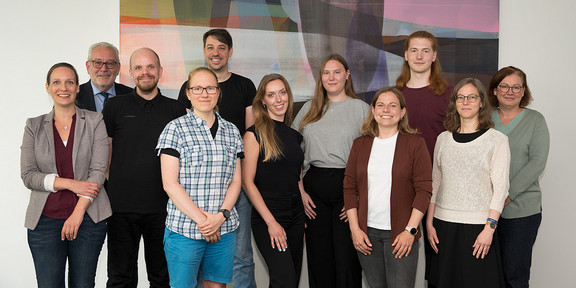New UA Ruhr Committee Strengthens Careers in Science
- UA Ruhr
- Research

The nine ECR Board members are:
- Marcel Burfeindt, Dr. Marius Kroll and Dr. Carolin Mügge from the Ruhr University Bochum
- Madeleine Jendernalik, Dr. Max Pascher and Dr. Corinna Schmidt from TU Dortmund University
- Annabell Hüsken, Dr.-Ing. Sonja Hellebrand and Prof. Dr. Tobias Schroedler from the University of Duisburg-Essen
he committee is coordinated by the Research Academy, which is responsible within the UA Ruhr for supporting researchers on their career paths within and beyond academic research.
One of the first tasks of the newly established ECR Board was to assess proposals for a new joint funding measure, the Mobility Grants for Postdocs. The Research Academy of the UA Ruhr had launched this pilot project at the beginning of the year. Postdocs from the three universities can apply for funding for stays abroad in order to gain international experience, establish research networks worldwide or develop independent projects with international partners. “The Mobility Grants are an important step towards opening up international opportunities for our postdocs and strengthening their academic independence,” says Prof. Wilhelm Löwenstein, spokesperson for the Research Academy.
Principles of good doctoral supervision
The UA Ruhr is continuously developing its joint structures and concepts to promote careers in science. Only recently, cross-university principles for good doctoral supervision were adopted (published in German only). Among other things, the three universities are committed to promoting the academic independence of doctoral students and supporting them in their career development. The paper also enshrines measures against abuse of power. The principles signed in April supplement the existing guidelines for safeguarding good scientific practice of the German Research Foundation.
The UA Ruhr is also planning a survey of all academic staff and doctoral students on career paths in academia in the near future. Based on this, further suitable support measures are to be derived. The project is funded by MERCUR and implemented by the Center for University Quality Development at the University of Duisburg-Essen.
